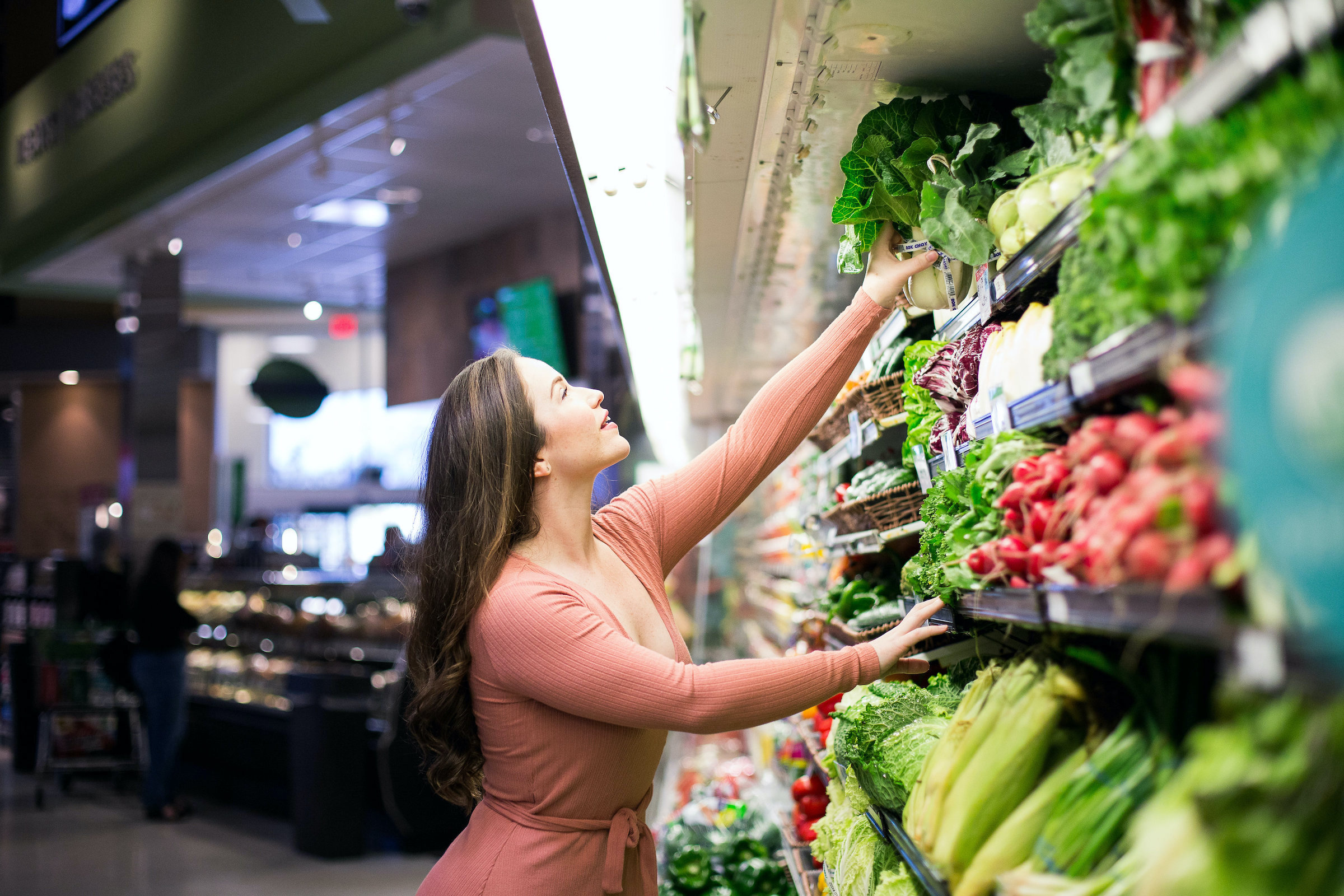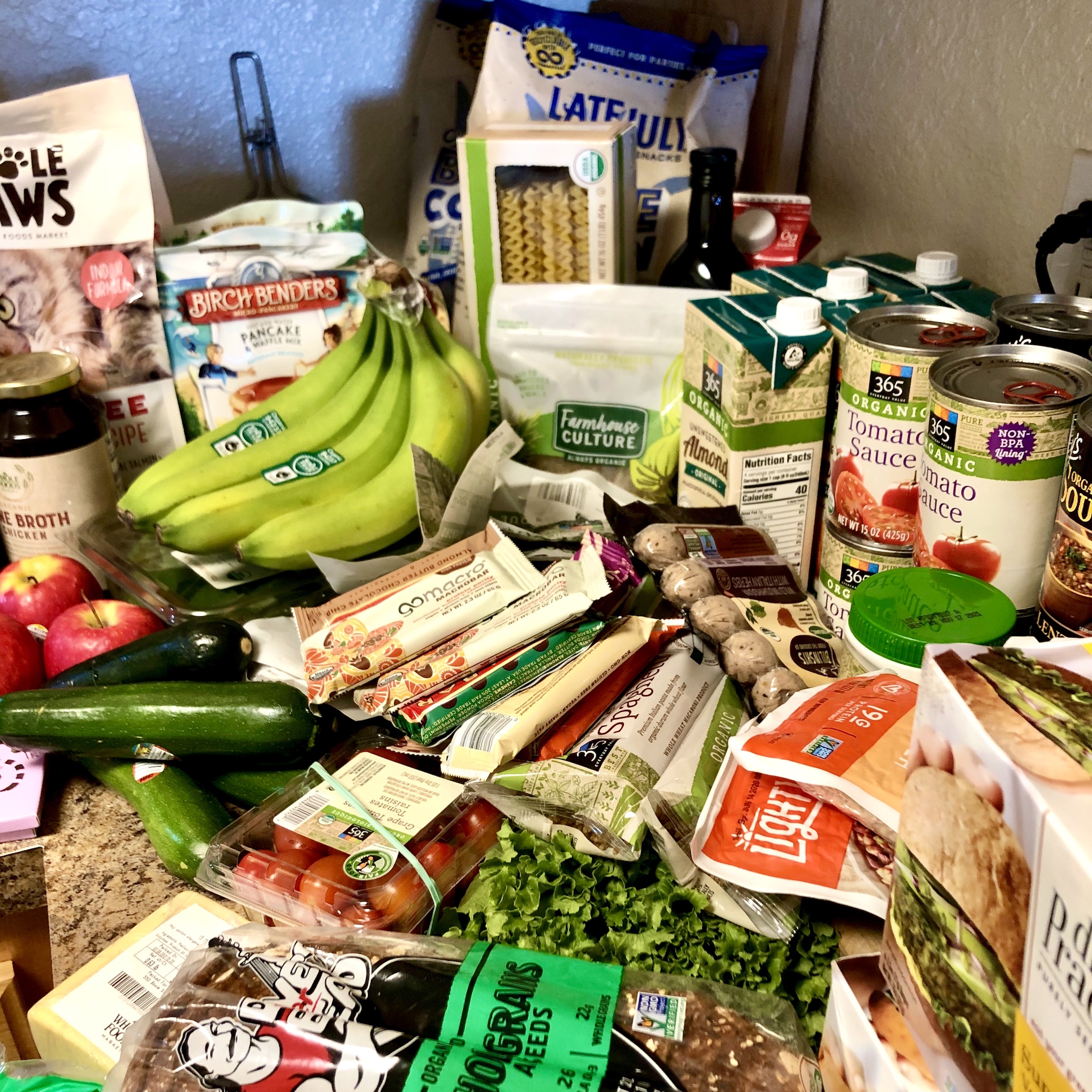Did you know that eating healthy can actually become dangerous? Ehem…what? 🙄
It’s true. We’ve all heard of the emotionally sensitive Eating Disorders that have affected our world like Bulimia & Anorexia. These eating disorders deal mostly with the quantity we are intaking. Back in the 80’s and 90’s it was popular to limit calories.
With not much information on superfoods, nutrient density, and organic soil, most Americans believed that it didn’t matter what they ate, just as long as the colories didn’t exceed a certain amount (or stayed within whatever was recommended). I remember trying Weight Watchers at a shockingly young age, and yes, the points system encourages you to eat “lesser point foods” (fruits & veggies), but there wasn’t much guidance around the quality of these points. And for a young girl, who didn’t know much about food quality, I became obsessed with points, calories, and fat-free, like the majority of the country.
When I got to college, there was a new hype happening in the health world. It wasn’t just about eating fruits & veggies anymore, ohhhhh no. It was about where they came from and how they were processed, essentially the quality of the food. I also started seeing organic labeling pop up in my grocery stores, in magazines & articles, and being the desperate young woman I was, I became hooked. If this was going to get me to my ideal body, I was willing to try it. I started hearing talk of superfoods, vegan lifestyles, non-GMO, and sustainability. Around this time, I started my training as a health coach.
My need to have the perfect diet became obsessive. I was learning so much about health and food (through my coaching training), and I wanted to excel at eating as healthy as possible. I would avoid social outings, I would secretly judge my friends & family for their eating habits, and would be so ashamed of myself if I ate something that wasn’t “perfect”. My obsession with healthy eating became unhealthy for my mental & emotional state. I also wasn’t listening to my body or honoring my cravings. I believed my mind knew best, which dictated my meal plans for the week. This hurt my health physically as well because I wasn’t giving my body what it actually needed nutritionally.
Towards the end of my Health Coaching education, I learned a concept that changed the way I thought about health forever. ORTHOREXIA, a proposed eating disorder characterized by an excessive preoccupation with eating healthy food. (WIKI)
Was this me?
ORTHOREXIA : a proposed eating disorder characterized by an excessive preoccupation with eating healthy food.

As a recovering Perfectionist, a healed food addict, veteran Performer, and Health Coach, I have had first-hand experience with Orthorexia. Eating healthy has a darker side, one that can be extremely harmful.
If you’re a Perfectionist, you can be in danger of developing this eating disorder. Studies show that people struggling with Orthorexia have Perfectionist tendencies and low self-esteem (Science Direct). The need to look perfect, act perfect, and be perfect, stems from a deep yearning to be accepted by themselves & others. In the process, proving our worth through food can easily turn into an unhealthy obsession.

Do You Struggle with Orthorexia? Take the Quiz.
Worried that this could be you? Below I’ve included Dr. Bratman’s Orthorexia quiz to discover if your obsessive eating habits are preventing you from living into your potential.
For each question that deems TRUE, mark 1 point.
- Do you spend more than three hours a day thinking about healthy food? (For four hours, give yourself two points.)
- Do you plan tomorrow’s food today?
- Do you care more about the virtue of what you eat than the pleasure you receive from eating it?
- Have you found that as the quality of your diet has increased, the quality of your life has correspondingly diminished?
- Do you keep getting stricter with yourself?
- Do you sacrifice experiences you once enjoyed to eat the food you believe is right?
- Do you feel an increased sense of self-esteem when you are eating healthy food and look down on others who don’t?
- Do you feel guilt or self-loathing when you stray from your diet?
- Does your diet socially isolate you?
- When you are eating the way you believe you are supposed to, do you feel a peaceful sense of control?
Results
If you scored…
2-3: You could have some slight orthorexic habits. Monitor these and keep an eye on how you interact with food.
4-9: You have a mild case of Orthorexia. With proper habit analyzing and mindset shifts, your relationship with food could begin to improve.
10-11: You have Orthorexia. I would consider seeking more extreme help in the form of Cognitive Behavioral Therapy, which has been proven successful in OCD patients.
How did you score? If you answered yes to all of the questions, I feel for you, my friend. Food is your life, but it shouldn’t be the only thing on your mind. Take my advice and seek help from experts in the field of eating disorders. Unfortunately, Orthorexia is a lesser-known disorder, so there aren’t many treatment options for it specifically. However, CBT (Cognitive Behavioral Therapy) and Eating Disorder therapists can be a great place to start.
Were you somewhere in the middle? If you’re a Perfectionist like me, you probably have some Orthorexic behaviors that need attention. With just a few lifestyle changes, your relationship with food can go from destructive to welcoming.

Below, I’ve highlighted the 3 ways that have helped me with my Orothorexia over the years that I have found to be the most affective.
Reflection
The first step is being aware of these habits and asking yourself…
- Where do they come from?
- Is there a form of shame or guilt involved? What are the stories you’re telling yourself about the quality of food you consume?
- Do you believe that people are judging you for what you eat?
- Why do you think that?
- Are these stories fact or someone’s opinion?
- Do I value their opinion?
- What would happen if you tried to seek out balance instead of perfection?
These questions can help open up your mind to habitual thought patterns that may be affecting how you feel about yourself and food. When you can pinpoint where these thoughts come from and learn to shift them, your actions can start to change, too.

Balance
A part of living a full and meaningful life is enjoying the unplanned moments. Let go of controlling every aspect of your life. When we know what’s coming all the time, it takes the fun out of life. Also, when our plans don’t go our way, disappointment, guilt, and shame may start kicking in. Say it with me, “I can’t control everything.” There’s no way. It’s an unrealistic way of living and it’s an unsustainable mindset. If you haven’t read “The Subtle Art of Not Giving a F*ck,” it’s all about not getting upset about every little thing that happens in your life, but to choose wisely those things you care about. Having a perfect diet shouldn’t be one of them.

Primary Foods
Speaking of choosing things to care about….I highly suggest (what the Health Coaching world calls) Primary Foods. As a Health Coach, I believe that whatever we put in our mouth is only secondary to the important things in our life. Nourishing your body, mind, and soul can run so much deeper than our nutritional intake. When we take care of the BIG ROCKS in our life first, what we consume digestively is not our top priority. We can start to enjoy life and spontaneity more. The four categories (or focuses) of Primary Foods are….
-Physical Activity
-Career
-Relationships
-Spirituality
Now Perfectionist, I’m not saying to get these parts of your life perfect. I’m saying focus your energy on creating a healthy movement routine, finding a job that you’re passionate about, nurturing those important relationships in your life (including yourself), or trusting that the universe has your back. It’s not complicated, it’s changing your priorities.
No need to be fearful of eating healthy, there is still hope. By practicing these 3 simple tactics, it can start to reshape how you look at food. They can also make a huge impact, steering your life’s purpose away from eating purely. I know you can do this. Don’t let Orthorexia hold you back from living the life you’ve always wanted. Organic avocados are just not worth that risk.
As my coaching practice evolves, I am pleased to announce that I will be putting together some resources for you around emotional eating. This topic is near and dear to my heart because I, and so many other women have or continue to struggle with eating.

Join My Community ❤︎
Would you be interested in free resources, group programs, or courses related to this topic? Wanna be the first to know when I create something like this? Join my weekly love letters! Not only will you get inspiring stories, holistic tips, and uplifting motivation, but you’ll get great deals on anything new I’m cooking up in my coaching practice. I can’t wait for you to join the community.
Orthorexia, Perfectionism, Imposter Syndrome…..let’s talk about it. It affects us more than we think, and it’s time to start changing that. Let me show you a better way towards Fully Loving You.




Recent Comments